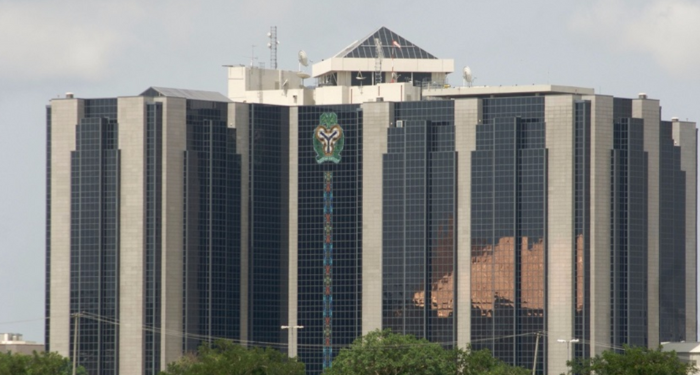The Central Bank of Nigeria (CBN) has issued a fresh directive clarifying how Financial Holding Companies and banks should compute their minimum paid-up capital.
This follows weeks of uncertainty that contributed to delays in the release of some lenders’ half-year and nine-month earnings.
In a circular dated November 14, 2025, the apex bank ruled that the minimum paid-up capital referenced under Section 7.1 of the 2014 Guidelines for Licensing and Regulation of Financial Holding Companies must be computed strictly as the par value of issued shares plus any share premium arising from issuance.
The clarification takes immediate effect and overrides all earlier interpretations.
What the circular is saying
The letter to the financial holding companies reads,
‘’The Central Bank of Nigeria (CBN) has noted divergent interpretations of the term minimum paid-up capital as referenced in Section 7.1 of the Guidelines for Licensing and Regulation of Financial Holding Companies in Nigeria 2014 (the Guidelines).
To ensure consistency and strict adherence, this clarification is hereby issued.
‘’For the purpose of Section 7.1 of the Guidelines, minimum paid-up capital shall be the aggregate of the par value of issued shares and any share premium arising from their issuance.
‘’Accordingly, all Financial Holding Companies are required to apply this definition in computing their minimum capital requirement, including those of their subsidiaries, without exception.
“This directive takes immediate effect, and all previous interpretations that conflict with this position should be discontinued forthwith. Please be guided accordingly.’’
Regulatory confusion triggered delays
Nairametrics understands the circular was prompted by divergent interpretations within the industry.
Some banks and HoldCos treated minimum capital as paid-up capital, excluding share premium, while others included reserves and retained earnings, resulting in inconsistent capital computations across the sector.
Multiple sources told Nairametrics that this lack of clarity created friction during ongoing regulatory reviews, especially as banks prepared their audited and unaudited earnings.
In several cases, institutions were asked to reconcile their capital positions before submitting results for approval, contributing to delayed filings.
Impact on HoldCos and dividend actions
Sources also indicated that HoldCos were a key focus of the clarification. Under existing rules, a HoldCo is expected to maintain greater issued share capital than the combined capital of all its subsidiaries.
Failure to meet this requirement can affect dividend approvals, group restructuring plans, and upstreaming of profits.
The CBN’s latest position, insisting that only issued share capital and share premium count toward minimum capital, means HoldCos that previously relied on reserves or retained earnings to meet the threshold may now need to adjust their structures.
“This directive takes immediate effect, and all previous interpretations that conflict with this position should be discontinued forthwith,” the circular stated.
Coming amid recapitalisation push
The clarification comes as banks continue to work toward the CBN’s new recapitalisation regime, which requires lenders to significantly boost their capital bases over the next two years.
With new thresholds now in motion, regulators are seeking uniform definitions to avoid inconsistencies in capital reporting.
The updated interpretation also strengthens the CBN’s consolidated supervision model, ensuring that capital at the HoldCo level reflects actual shareholder contributions rather than accounting reserves.
FUGAZ banks: current share capital and premium
Based on the clarified definition, Nigeria’s largest banking groups, popularly referred to as FUGAZ, hold significant capital buffers driven largely by their share premiums.
- First HoldCo has a share capital of N20.94 billion, supported by a share premium of N377.10 billion, bringing its total recognised paid-up capital to N398.04 billion as of September 2025.
- UBA maintains a share capital of N20.52 billion and a share premium of N329.56 billion, giving it a total of N350.08 billion under the new interpretation.
- GTCO holds a share capital of N18.21 billion, with a significantly larger share premium of N489.37 billion, resulting in a combined recognised capital of N507.58 billion.
- Access Holdings stands higher, with a share capital of N26.66 billion and a share premium of N568.24 billion, amounting to N594.90 billion in total.
- Zenith Bank, meanwhile, has a share capital of N20.54 billion and a share premium of N594.11 billion, bringing its total recognised paid-up capital to N614.65 billion, the highest among the FUGAZ banks.
What comes next
- With the new directive now in force, banks and HoldCos are expected to revalidate their capital calculations and reflect the updated definition in upcoming filings.
- Sources tell Nairametrics that additional capital guidance may follow as part of the broader recapitalisation framework.
- The CBN’s push for clarity is expected to streamline capital reporting, reduce regulatory disputes, and accelerate delayed financial disclosures across the banking sector.








